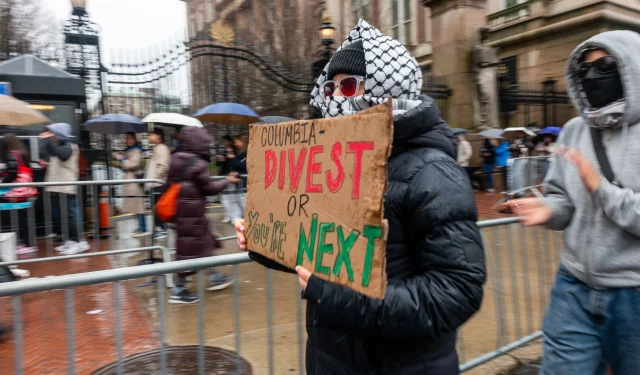Cinematic Polarization: A New Era of Documentary Films
This week at the Laemmle Theater’s Monica Film Center in downtown Santa Monica, audiences can experience a striking juxtaposition of two documentaries: No Other Land and the newly released October 8. The former examines the Israeli government’s efforts to displace Palestinians from Masafer Yatta, while the latter delves into the aftermath of the Hamas massacre in southern Israel on October 7, 2023, alongside the challenges faced by Jewish students in America.
A Diverse Screening Experience
The convergence of these screenings provides a tangible example of the evolving landscape of cinema, where distinct narratives reflect the polarized societal views surrounding the Israeli-Palestinian conflict. Greg Laemmle, the theater’s owner, remarked, “We believe that all kinds of films need to be put out into the marketplace. The public can inform themselves about what’s out there and hopefully learn more about what’s going on in the world by seeing these films.”
Independent Films Flourishing
A growing trend has emerged across movie theaters nationwide, as both independent and major chains are screening these two significant documentaries. Despite the reluctance of mainstream Hollywood to address sensitive topics, No Other Land and October 8 have captivated viewers, generating significant ticket sales—totaling around 250,000 since their release.
The Audience Divide
The divergent appeal of these documentaries raises concerns among experts, who fear it underscores a fraught cultural divide. “It would be great if we were getting a lot of crossover, but I don’t know that we are,” stated Wendy Sachs, director of October 8. This reinforces the notion that viewers are increasingly segregating based on ideological lines, complicating discussions on critical global issues.
About No Other Land
No Other Land, created by filmmakers including Palestinian residents of the West Bank and Israeli peace activists, has garnered acclaim for its poignant portrayal of Palestinians fighting against displacement. Despite initial challenges securing distribution, the film overcame barriers through dedicated grassroots efforts and strategic marketing. Its recent box office success, expected to surpass $2 million, speaks to a growing appetite for documentaries addressing the Middle Eastern conflict.
Highlighting Cultural Context
The film’s success has been bolstered by both global and local events, including controversial actions from public officials, which have raised its profile. The creators aim to illuminate the human aspect of the Israeli-Palestinian struggle, making the abstract personal and relatable.
Exploring October 8
October 8, on the other hand, serves as more than just a recounting of the tragic events of October 7; it critiques 18 months of antisemitism and anti-Zionist sentiments emerging across American campuses. Featuring contributions from various key figures, the film makes a case for the long-standing influence of Hamas on U.S. sentiments regarding Israel.
Grassroots Movements and Cultural Impact
The dynamic of grassroots advocacy and public attendance at screenings reflects a pressing need for the Jewish community to affirm its communal identity and political agency at this time. As many congregations organize group viewings, it indicates that these films resonate deeply with their audience’s current societal concerns.
Documentary Trends: A Shift in Narrative
Both films signify shifting trends within documentary filmmaking, moving away from neutral exploration to passionate advocacy. They serve as platforms not just for storytelling, but for reinforcing community identities in a landscape shaped by divisive politics. A veteran studio executive opined, “If you watched both films, you’d actually get a pretty comprehensive view of the situation.” However, the current climate favors dichotomous narratives over nuanced discussions.
The Future of Cinematic Discourse
As these films continue to spark debate and draw audiences, the box office landscape remains vibrant, with upcoming releases further exploring the Middle Eastern theme. The anticipated documentary The Encampments, produced by vocal anti-Zionist Macklemore, will soon contribute to this ongoing dialogue. In preparing for their release, society must grapple with the implications of such polarized narratives on our collective understanding of complex global issues.


